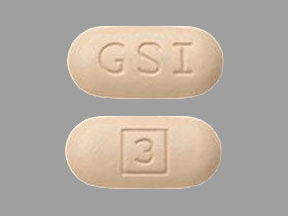Vosevi Dosage
Generic name: SOFOSBUVIR 400mg, VELPATASVIR 100mg, VOXILAPREVIR 100mg
Dosage form: tablet, film coated
Drug class: Antiviral combinations
Medically reviewed by Drugs.com. Last updated on Mar 14, 2024.
Testing Prior to the Initiation of Therapy
Test all patients for evidence of current or prior HBV infection by measuring hepatitis B surface antigen (HBsAg) and hepatitis B core antibody (anti-HBc) before initiating HCV treatment with VOSEVI [see Warnings and Precautions (5.1)].
Recommended Dosage
The recommended dosage of VOSEVI is one tablet, taken orally, once daily with food [see Clinical Pharmacology (12.3)]. One tablet of VOSEVI contains 400 mg of sofosbuvir, 100 mg of velpatasvir, and 100 mg of voxilaprevir. Table 1 shows the recommended treatment regimen and duration based on patient population.
| Genotype | Patients Previously Treated with an HCV Regimen Containing: | VOSEVI Duration |
|---|---|---|
|
||
| 1, 2, 3, 4, 5, or 6 | An NS5A inhibitor* | 12 weeks |
| 1a or 3 | Sofosbuvir without an NS5A inhibitor† | 12 weeks |
Renal Impairment
No dosage adjustment of VOSEVI is recommended in patients with any degree of renal impairment including patients on dialysis [see Use in Specific Populations (8.6) and Clinical Pharmacology (12.3)].
Moderate or Severe Hepatic Impairment
VOSEVI is not recommended in patients with moderate or severe hepatic impairment (Child-Pugh B or C) due to higher exposures of voxilaprevir in these patients [see Warnings and Precautions (5.2), Use in Specific Populations (8.7), and Clinical Pharmacology (12.3)].
Frequently asked questions
- What is the difference between hepatitis B and C?
- What are the new drugs for the treatment of hepatitis C?
- How much does Vosevi cost?
- What is the difference between Vosevi and Epclusa?
- Does Vosevi cure hepatitis C?
- What types of hepatitis C (HCV) does Vosevi treat?
More about Vosevi (sofosbuvir / velpatasvir / voxilaprevir)
- Check interactions
- Compare alternatives
- Pricing & coupons
- Reviews (2)
- Drug images
- Latest FDA alerts (1)
- Side effects
- Patient tips
- During pregnancy
- FDA approval history
- Drug class: antiviral combinations
- En español
Patient resources
Professional resources
Related treatment guides
Further information
Always consult your healthcare provider to ensure the information displayed on this page applies to your personal circumstances.


